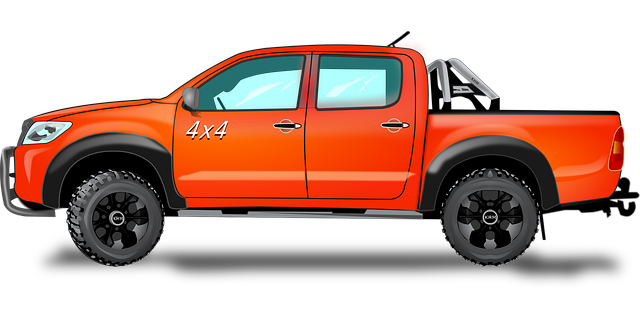Receiver hitches are vital components for 4×4 vehicles in Brownsville, enhancing towing capacity and versatility. They come in different classes and weight ratings, catering to various towing needs, from light to heavy-duty. For off-road adventures, they provide secure attachment points for equipment, improving stability on rough terrain and accessing remote areas. Selecting the right hitch requires considering hitch class, weight rating, installation ease, and specific 4×4 mounting points. Keywords: 4×4 Brownsville.
Looking to enhance your 4×4 adventures in Brownsville? Discover the versatile receiver hitch, a key component for 4×4 vehicles. This article explores their role in improving towing capabilities and off-road performance. We’ll guide you through different types suitable for various needs, highlighting benefits and essential factors to choose the perfect match for your 4×4. Unlock new possibilities with the right receiver hitch!
- Understanding Receiver Hitches: Their Role in 4×4 Vehicles
- Types of Receiver Hitches and Their Applications in Brownville, TX
- Benefits of Using Receiver Hitches for Off-Road Adventures
- Choosing the Right Receiver Hitch for Your 4×4: Factors to Consider
Understanding Receiver Hitches: Their Role in 4×4 Vehicles

Receiver hitches play a pivotal role in 4×4 vehicles from Brownsville and beyond. These essential components facilitate the attachment of trailers or towing equipment to the vehicle’s receiver, enhancing its versatility and functionality. By allowing for the secure transport of additional cargo or increased towing capacity, receiver hitches are a game-changer for those who rely on their 4x4s for work or leisure activities.
In the context of 4×4 vehicles, understanding the compatibility and strength of receiver hitches is paramount. Different models cater to various towing needs, from light duty to heavy-duty applications. The right hitch ensures a stable connection, enabling safer and more efficient towing. This, in turn, opens up opportunities for exploration, whether it’s navigating rugged landscapes or simply transporting equipment for various outdoor pursuits.
Types of Receiver Hitches and Their Applications in Brownville, TX

In Brownville, TX, receiver hitches are a popular choice for 4×4 enthusiasts looking to enhance their vehicle’s towing capabilities. There are several types of receiver hitches available, each with unique applications and benefits tailored to different needs.
One common type is the standard receiver hitch, which features a fixed bolt pattern and is ideal for securing cargo carriers, bike racks, or small trailers. This versatile option is suitable for everyday use, allowing homeowners to transport various items without breaking the bank. For those requiring more advanced towing solutions, a gooseneck receiver hitch offers greater stability and capacity, making it perfect for hauling heavy equipment or large recreational vehicles. Its extended neck provides added clearance for larger loads, ensuring a safer and smoother ride in Brownville’s diverse terrain.
Benefits of Using Receiver Hitches for Off-Road Adventures

Using receiver hitches for off-road adventures offers a multitude of benefits, especially when exploring challenging terrains like those found in 4×4 Brownsville. Firstly, these hitches provide a secure and stable attachment point for towing or carrying additional equipment, such as winches, recovery devices, or cargo carriers. This added stability enhances the overall performance of your vehicle during rough terrain navigation.
Furthermore, receiver hitches allow for easier access to rugged areas that might be inaccessible with standard towing setups. They enable you to mount various accessories like lighting systems, antenna mounts, and tool boxes, enhancing both safety and utility during off-road excursions. This versatility makes them a game-changer for adventurous folks looking to explore the vibrant yet challenging landscapes beyond the beaten path.
Choosing the Right Receiver Hitch for Your 4×4: Factors to Consider

When choosing a receiver hitch for your 4×4 in Brownsville, consider several factors to ensure optimal performance and compatibility. First, determine the class of the hitch based on your vehicle’s towing capacity and the type of trailer or accessory you plan to attach. Class I hitches are suitable for light-duty use, while Class II and III hitches offer greater strength and stability for heavier loads.
Next, assess the weight rating and distribution of the hitch. Ensure it aligns with your expected load to prevent damage or instability. Additionally, think about the installation process and required tools. Some hitches are easier to install than others, so choose one that matches your comfort level and available resources. Finally, consider any specific mounting points or clearances needed for your 4×4’s unique design, ensuring a secure and seamless fit.



